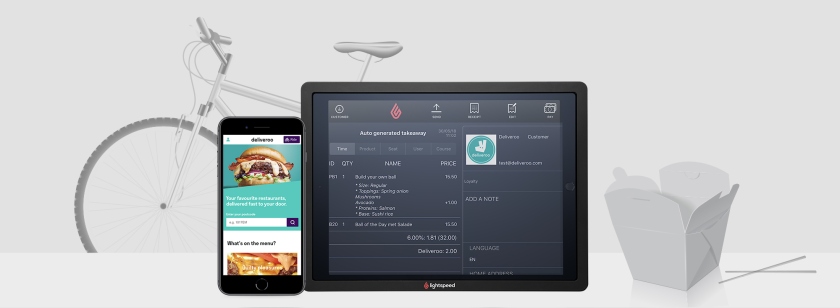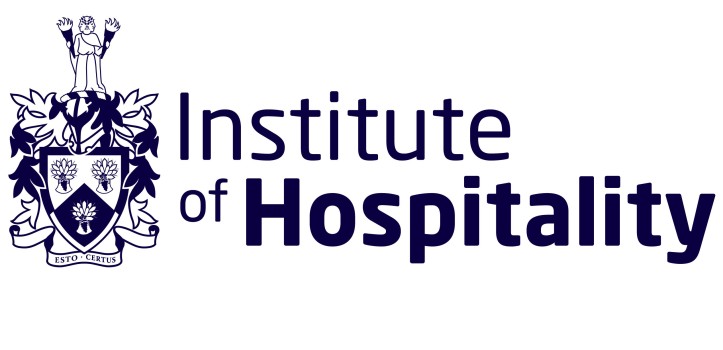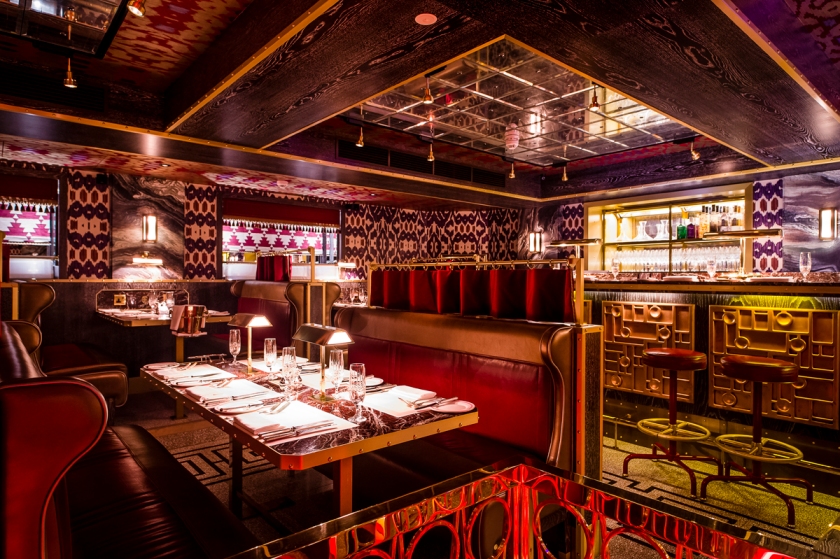
Food delivery market leader Deliveroo and ePOS vendor Lightspeed have announced their integration. Lightspeed customers will now be able to see and process Deliveroo orders directly in their ePOS system.
The integration can help entrepreneurs easily incorporate delivery into their business plans, and will empower restaurateurs to become more efficient and increase their profits. This integration will be available to Lightspeed customers only.
An end to chaos, mistakes and extra costs
This integration is the innovation hospitality operators have been waiting for. Previously, offering food delivery meant having to deal with too many iPads behind the counter and the additional work of manually re-entering delivery orders into the ePOS. Not only was this a time-consuming and inefficient way of working, but it was also costly as most restaurants would need a full-time employee to take care of processing delivery orders. This integration solves both problems, eliminating the need for multiple tablets and ensuring that stock updates automatically.
Jerome Laredo, VP EMEA of Lightspeed, states: “At Lightspeed, we have always had a vision of a connected hospitality world and we strive to make our restaurateurs’ lives easier by providing them with the tools they need to grow their business.
We want Lightspeed to be the management hub for restaurants. This integration with Deliveroo is a great example of how we can give our customers an incredible opportunity to partake in the rapidly growing food-delivery market while making their operations a lot more efficient, and we are particularly pleased with that.”
Deliveroo is the first food-delivery company taking a step towards partnering with ePOS providers and remain enthusiastic about the possibilities the integration offers.
Mathieu de Lophem, General Manager, Deliveroo Benelux: “With the goal of helping restaurants thrive, Deliveroo is constantly innovating. Our partners have told us that integrating with their sales systems is such an important step in them being able to provide delivery services – that’s why we’re excited to partner with Lightspeed globally.
Through this partnership, we help restaurants cut out needless time inputting orders into sales systems. This allows front of staff to focus on delivering an amazing dine-in experience, while enabling restaurants to boost revenues through delivery orders.”
For restaurants and other hospitality operators the benefits are clear:
- Staff processing delivery orders can be reallocated to front-of-house roles, improving the customer experience in store
- Huge time saving, allowing restaurants to quickly process more orders
- Reduced risk of errors when inputting orders, providing a better experience for customers
- More counter space, decluttering the working space for restaurant staff
Nicholas Steiner, Lightspeed customer and owner of Yoobi in London is already using the integration. He says: “Up until now, each delivery order had to be manually transcribed from Deliveroo into Lightspeed by one of our team members. This process was laborious, and opened us up to mistakes which resulted in customers getting an incorrect order and making accurate reporting a challenge.
The integration is exactly what we needed as orders arrive into our Lightspeed system seamlessly. This now allows us to make orders quicker and with greater accuracy for our customers and allows us to have accurate reporting. Not only is the system faster for us, it has also allowed us to reduce our labor costs as at the volume of orders we had on a daily basis, we needed to employ one person just to enter orders into our system. Team is also happy as entering orders into the system all day was not very popular.”
About Lightspeed:
Lightspeed is a Business Partner of the Institute of Hospitality. It is the UK’s leading cloud-based management system for hospitality and retail. With more than 50,000 retailers and restaurant owners, Lightspeed processes over £12 billion in transactions per year in more than 100 countries. Lightspeed customers see on average a 20% increase in their sales within the first year. Lightspeed was founded in 2005, with its headquarters located in Montréal, Canada, and has offices in the Netherlands, Ottawa, New York, Ghent, Brisbane and london.
More information, please visit www.lightspeedhq.co.uk




